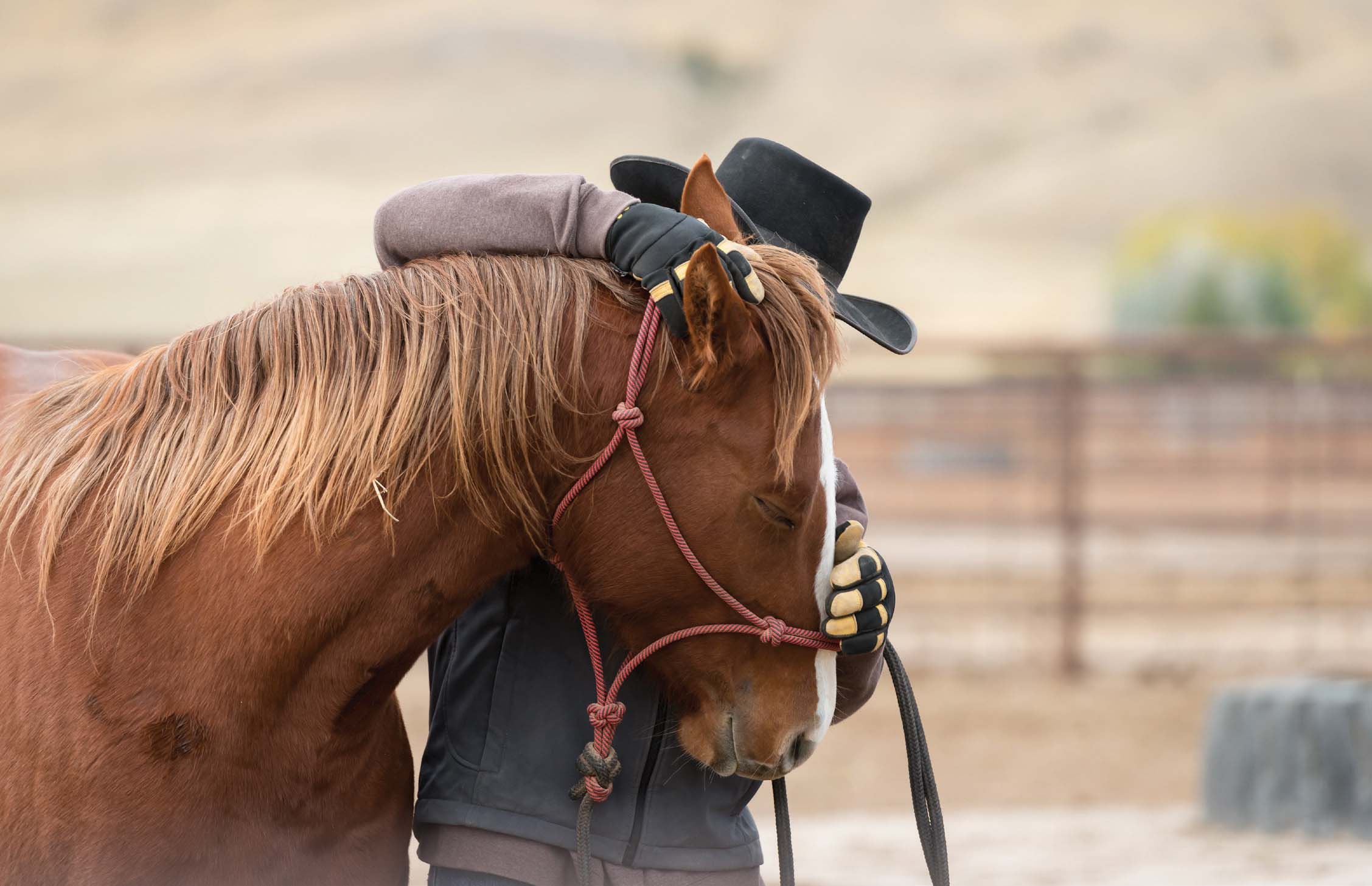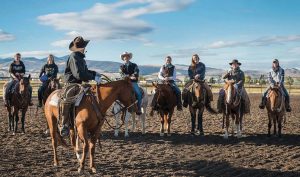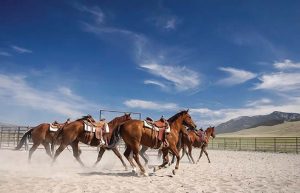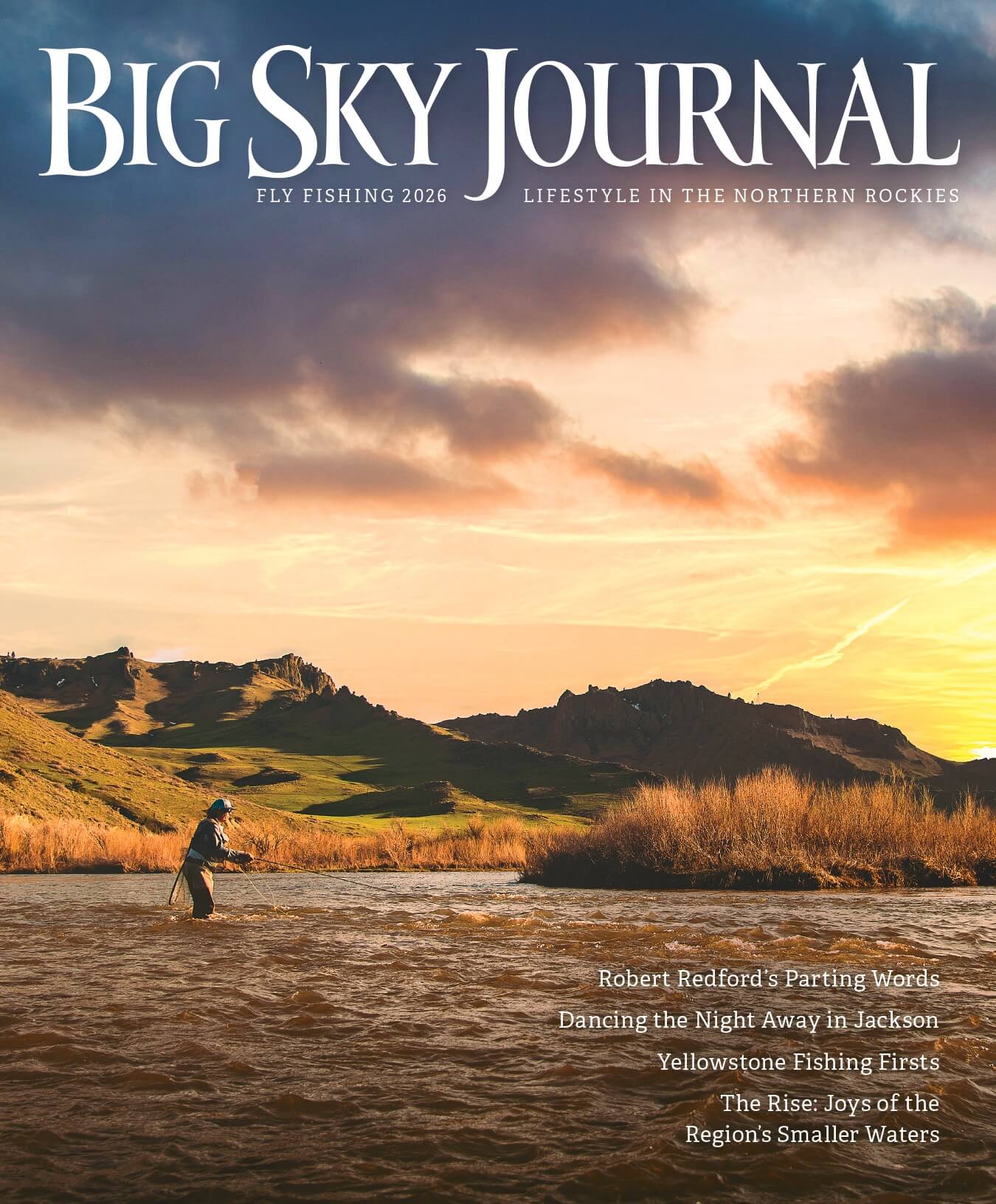
25 Sep Round Up Spotlight: The Montana Center for Horsemanship
Located in Dillon, Montana, just east of the Continental Divide and tucked against the Blacktail Mountain Range, is the internationally renowned Montana Center for Horsemanship (MCH). With a mission to redefine the nature and scope of human-horse interactions to enrich, improve, and augment the lives of both, the equine education center offers regional, national, and international La Cense Method-based programming, training, and support for equestrians.

As the director of development and communications, Janet Rose is particularly passionate about “horse happiness” and all that the center works to achieve for the local community and University of Montana Western students. Here, she describes the organization’s efforts toward becoming an international leader in horsemanship education.
BIG SKY JOURNAL: What is the Montana Center for Horsemanship, and how does its vision inform its mission and outreach?
JANET ROSE: MCH is the only international equine education center in the U.S. focused exclusively on natural horsemanship and, more specifically, the La Cense Method of natural horsemanship. An independent nonprofit, MCH relies upon public and charitable support to foster and promote its mission to:
- Advance natural horsemanship education, enabling horses to learn more effectively and improving horse happiness.
- Help horses and humans make the most of their respective lives.
- Offer individuals a way to achieve academic, personal, professional, and financial success in the equine industry.
- Perpetuate a defining tradition of the American West.
- Support and enrich the greater Dillon community and Montana through new jobs, facilities, and other economic and cultural opportunities.
- Develop a unique synergy among professional and amateur equestrians, educators, scientists, and researchers to improve and expand horsemanship in the broadest sense of the term.
MCH accomplishes this in several ways. We currently offer a four-year accredited Bachelor of Science in natural horsemanship — the first and only one in the nation — in partnership with the University of Montana Western (UMW). We host annual equine events, including conferences, clinics, symposiums, and an equine film festival. Finally, we offer an annual Colt Sale and Prep Program. The unique program — whereby area ranches donate young colts to MCH and UMW — teaches students how to train horses, run an event, and sell stock. Over 180 days, students use the La Cense Method to work their colts through every conceivable experience to which they might be exposed. In the spring, after the horses (and students) demonstrate what they’ve learned, the colts are auctioned to support UMW scholarships.
BSJ: What is natural horsemanship, and what differentiates the La Cense Method from other approaches?
ROSE: The La Cense Method is unique, as it isn’t based on the teachings or training of one individual or idea. The framework began with great horsemen like Ray Hunt and was then further developed more than two decades ago by MCH co-founder and French-American horseman William Kriegel — in collaboration with a wide range of equine experts, including scientists, researchers, horse trainers, and horse educators. The La Cense Method seeks to develop a horse-human relationship defined by mutual respect and trust. It’s a progressive, step-by-step process blending the best of traditional horsemanship with the art and skill involved in training and riding — all in a manner that works with a horse’s natural behaviors, instincts, and personality. Horse happiness — as measured by health, care provided, and environmental comfort — is a vital, driving philosophy behind everything we do and all we teach at MCH.
BSJ: What do you wish more people understood about horses, horsemanship, and, perhaps most importantly, about communication across the human-animal language barrier?
ROSE: The horse is a highly intelligent, sentient being whose language is non-verbal and different from our own. There is no other animal that has had such a significant impact on so many facets of humanity’s cultural, social, and infrastructural development — from supporting agriculture to transportation to mental health — it’s almost incomprehensible. If we take the time and patience to educate ourselves about the way a horse thinks, acts, and exists, we will all benefit greatly from this spectacular, uniquely complicated creature.
When horse people talk about the way a horse “reads” a person, they aren’t speaking “mumbo jumbo;” they’re trying to explain that horses know much more about what is going on inside of a person — down to our heartbeats — than even we can understand. This is also why horses are often such great teachers and can relate so well to people with emotional challenges or differences, such as those with autism or trauma. They can help us focus, build leadership skills, manage stress, and even be more successful in our working lives. With a better understanding of these extraordinary partners in life and livelihood on this planet comes profound value.
BSJ: What is the center’s relationship with the community, program partners, and local universities, specifically UMW?
ROSE: Though MCH is an independent nonprofit, we partner with UMW to provide horse boarding and hands-on instruction to students enrolled in the equine degree programs. We also partner with the community on many events, including horsemanship clinics and special equine-related projects and programs. We work with local 4-H and FAA programs, too. Our relationship with the community is one of mutual interest and partnership, in which we contribute economically and culturally through employment opportunities, tourism dollars, and special events.
Additionally, MCH hosts visiting students from Europe every summer and from our “sister” equine education center, Haras de La Cense, located just outside of Paris. Haras de La Cense is the leading equine education center in Europe and also teaches the La Cense Method.
BSJ: What’s in store for the future of MCH?
ROSE: MCH is currently expanding local, national, and international outreach efforts and planning additional events, such as the annual conference, special clinics, and the Equus International Film Festival. We’re also working to expand our degree programs and other educational opportunities, both with UMW and independently, to introduce the La Cense Method to more individuals and groups working with horses. We want to lead the way in horsemanship education. This year, we are hosting multiple clinics in conjunction with conference presentations, and that, too, is a unique component of our growth and evolution.
In addition, MCH recently expanded its campus to include rental housing for students and others so that the center is a true campus with a wide range of horse-related experiences and opportunities.

The Montana Center for Horsemanship provides an education built on a foundational partnership between horse and human.
MCH is currently campaigning to expand and grow the center to include additional indoor and outdoor arenas, a veterinary research laboratory, expanded conference and meeting spaces, and more. To support these efforts, donate, or learn more about MCH and its offerings, visit montanacenterforhorsemanship.org.




No Comments